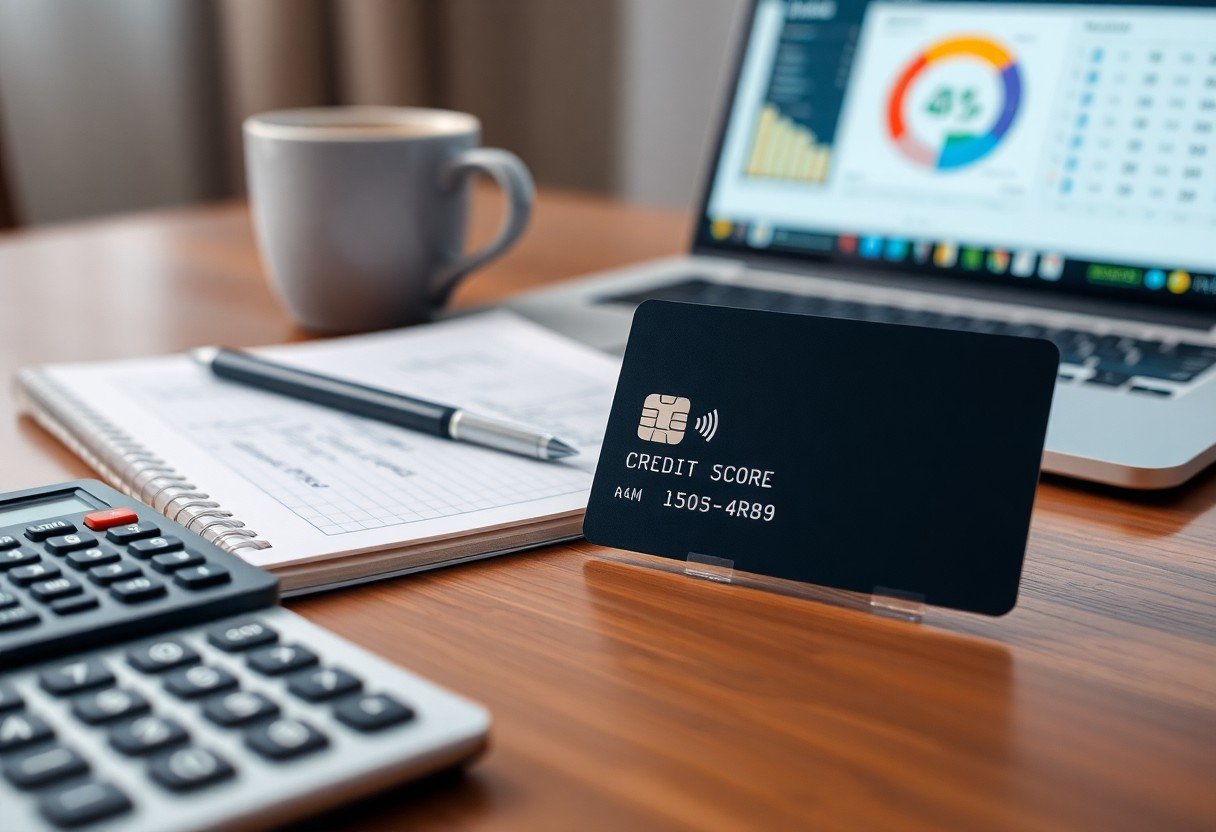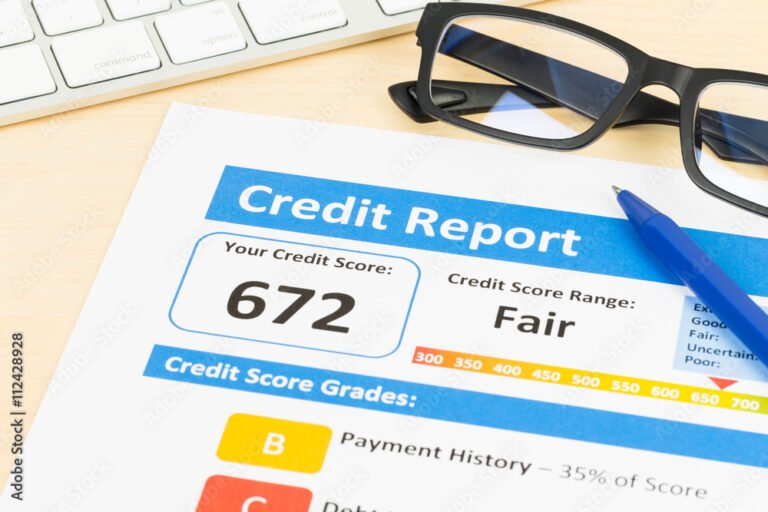How To Raise Credit Score With Credit Cards
Just like you, I want to see my credit score soar, and using a credit card wisely is one of the best ways to do it. In this post, I’ll share my favorite tips on how to leverage your credit card to boost your credit score. Whether you’re just starting out or looking to improve an existing score, I’ll guide you through some simple strategies to help you achieve your financial goals. Let’s get started on the journey to a better credit score together!
Key Takeaways:
- Pay your credit card bills on time to establish a positive payment history.
- Keep credit utilization below 30% by managing your spending and paying off balances regularly.
- Avoid opening too many new accounts at once, as each inquiry can impact your score.
- Consider becoming an authorized user on a responsible person’s credit card to benefit from their positive credit habits.
- Review your credit report periodically to spot errors and address any inaccuracies promptly.
Decoding Your Current Credit Score
Understanding your current credit score is a fundamental step towards improving it with your credit card usage. Scores typically range from 300 to 850, and even a small increase can open doors to better loans and interest rates. Knowing your starting point helps me to tailor my credit-building efforts more effectively, allowing for strategic decisions regarding payments, credit utilization, and inquiries.
The Factors That Shape Your Score
Several key factors influence your credit score, shaping the financial landscape you navigate. These include:
- Payment history – timely payments boost your score
- Credit utilization – keeping balances low is necessary
- Length of credit history – longer histories generally favor your score
- Types of credit – a mix of credit accounts can help
- New credit inquiries – too many can negatively impact your score
The blend of these elements gives a rounded picture of your creditworthiness.
Where to Find Your Credit Report
Locating your credit report is straightforward. You can access it for free from several sources, including AnnualCreditReport.com, which allows you to check your report from the three major credit bureaus—Equifax, Experian, and TransUnion—once every 12 months. Additionally, many credit card companies and financial institutions offer free access to your credit score and report as part of their services. Taking advantage of these resources ensures I stay informed about my credit status and any inaccuracies that may need my attention.
Crafting a Credit Card Strategy for Improvement
Developing a well-thought-out credit card strategy is pivotal in elevating your credit score. Focusing on your specific financial goals while utilizing credit cards can yield significant benefits. By aligning your spending with your aspirations—be it buying a car, securing a mortgage, or planning a big trip—you can leverage your credit card usage to your advantage. Assess various factors like payment history, interest rates, and rewards to create a strategy that suits you best and paves the way for a healthier credit profile.
Choosing the Right Credit Card for Your Goals
Selecting a credit card that aligns with your financial objectives can accelerate your credit score improvement. If you’re looking to build credit, starter cards with no annual fees are excellent options. For those seeking rewards, consider cashback or travel bonuses. I’ve found that comparing offers can reveal cards that meet specific criteria like lower interest rates for balances, which ultimately aids in maintaining a healthy credit utilization ratio.
Understanding Credit Utilization and Its Importance
Credit utilization refers to the ratio of your credit card balances to your total credit limits, and it significantly impacts your credit score. Keeping this ratio below 30% not only reflects responsible credit management but can also enhance your score. I’ve observed that individuals who prioritize their spending to stay within this threshold often see notable improvements in their credit scores over time.
For example, if you have a total credit limit of $10,000, aim to maintain a balance of no more than $3,000 across all your credit cards. This balance shows lenders you’re not overly reliant on credit, which is a signal of financial health. Regularly monitoring your utilization and adjusting your spending habits can greatly influence your credit score. If needed, consider requesting a credit limit increase to further improve your ratio—just be cautious not to increase your spending as well.
Mastering Payment Habits for Optimal Results
Establishing consistent payment habits can greatly enhance your credit score over time. By adopting effective strategies for making timely payments, you not only benefit your credit score, but also develop a healthier relationship with your finances. Prioritizing payment habits plays an vital role in building a strong credit history and demonstrating your reliability to potential lenders.
The Importance of Timely Payments
Timely payments contribute around 35% to your credit score, making them the most significant factor in determining your financial health. Each time you miss a payment, it can negatively impact your score, creating a ripple effect that can hinder your ability to secure favorable loan terms in the future. Staying vigilant about deadlines ensures that you maintain a positive credit history.
Strategies for Managing Monthly Payments Effectively
To manage your monthly payments effectively, adopting practical strategies can make all the difference. Setting up automatic payments for at least the minimum amount helps avoid late fees and missed deadlines. Additionally, creating a budget that accounts for your credit card payments allows you to allocate funds efficiently, preventing any surprises at the end of the month.
Engaging with an automatic payment system enables me to streamline my finances while ensuring I never miss a due date. I often pair this with setting reminders a few days before payments are due for an extra layer of security. Along with budgeting, tracking expenses using an app has allowed me to stay on top of my spending, ensuring that I never overshoot my monthly limit and avoiding unnecessary debt accumulation. By implementing these strategies, I can enjoy the peace of mind that comes with knowing my credit card payments are in order, while also boosting my credit score in the long run.
Leveraging Credit Card Benefits for Score Growth
Effectively using credit card benefits can boost your credit score over time. For instance, regularly utilizing your card for vital purchases while adhering to your payment schedule builds a solid credit history. Moreover, various rewards programs and cash-back incentives can enhance your financial leverage. I recommend checking out resources like Improving Your Credit Score for ways to optimize these benefits further.
Maximizing Rewards without Overextending Debt
Utilizing credit cards for rewards should never overshadow the importance of maintaining manageable debt levels. I find that carefully tracking my spending against my budget helps me enjoy benefits without going overboard. By only charging what I can realistically pay off monthly, I earn rewards while keeping my credit utilization under 30%, thereby positively impacting my credit score.
Utilizing Balance Transfers: A Double-Edged Sword?
Balance transfers can be an effective way to manage debt, but they come with risks. They often involve fees or higher interest rates after an introductory period. I must carefully evaluate the terms before transferring balances to ensure that this strategy doesn’t lead to additional debt. Balance transfers should be used to consolidate debt efficiently rather than as a means to further extend spending.
Monitoring Your Progress: Tools and Tips
Keeping track of your credit score is crucial for understanding your progress and making informed decisions. I suggest utilizing a combination of free tools and proactive strategies to monitor your credit effectively. Here are some tips to help you track your journey:
- Sign up for free credit report services
- Check your credit score regularly through your bank or credit card provider
- Set reminders to review your financial goals and progress
- Stay aware of any changes to your credit report
Knowing how these tools function can empower you to take charge of your financial future.
Using Credit Monitoring Services to Stay Informed
Many credit monitoring services provide real-time updates on your credit status. By enrolling in one, I can receive alerts about any changes in my credit report, such as inquiries or new accounts. These insights allow me to stay vigilant about my credit health, making it easier to address any issues that arise quickly.
When and How to Adjust Your Strategy
Adjusting your strategy becomes necessary if you notice stagnant growth in your credit score or unexpected drops. I evaluate my credit utilization, payment history, and account mix regularly. Additionally, keeping my spending habits in line with my financial goals ensures that my credit score keeps advancing. When reassessing your strategy, start by identifying any available data points. If you notice a sudden dip in your score, examine your recent credit usage, missed payments, or new credit inquiries. For instance, a spike in your credit utilization might indicate that you should pay down balances or increase your credit limits. Set short-term goals, like improving your payment consistency, to create a detailed roadmap for your score improvement. Starting small and building on achievements will help raise your credit score over time.
To wrap up
Summing up, raising your credit score with a credit card can be straightforward if you stay mindful of how you use it. By making timely payments, keeping your balances low, and monitoring your credit regularly, you can positively impact your score over time. I believe you’ll find that a little discipline goes a long way in building that financial trust. Just take it step by step, and you’ll see improvement in your credit profile before you know it!
Q1: How can using a credit card responsibly help improve my credit score?
A: Using a credit card responsibly can positively influence your credit score in several ways. Firstly, timely payments demonstrate your reliability to lenders, which can improve your payment history, a significant factor in your credit score. Secondly, maintaining a low credit utilization ratio (the amount of credit you’re using compared to your total credit limit) can also enhance your score. Ideally, it’s best to keep your utilization below 30% to show that you are not overly reliant on credit.
Q2: Is it beneficial to pay off my credit card balance in full each month?
A: Yes, paying off your credit card balance in full each month is beneficial for your credit score. Doing this helps you avoid accruing interest and keeps your credit utilization low. Additionally, when you consistently pay your balance on time, it positively affects your payment history, one of the most impactful aspects of your credit score. This practice also encourages good financial habits, which can lead to better credit management overall.
Q3: How often should I check my credit card statement to monitor my credit score?
A: Regularly checking your credit card statement is important for your overall financial health and credit score improvement. Aim to review your statement each month to ensure you are aware of your spending, payments, and any potential discrepancies. Additionally, you can check your credit score several times a year; just ensure you are utilizing services that do not impact your credit score negatively when you request it.
Q4: What steps should I take if I can’t afford to pay my credit card bill on time?
A: If you’re unable to pay your credit card bill on time, it’s important to act quickly. First, communicate with your credit card issuer; they may offer hardship programs or payment plans. Even if you can only make a partial payment, doing so can mitigate the impact on your credit score. Additionally, focusing on creating a budget or a financial plan can help you manage expenses and avoid late payments in the future.
Q5: Does having multiple credit cards affect my credit score positively or negatively?
A: Having multiple credit cards can have both positive and negative effects on your credit score. On the positive side, if you manage multiple cards well by making timely payments and maintaining low balances, this can improve your credit history and utilization ratio. However, applying for many credit cards in a short period can cause hard inquiries on your credit report, which may temporarily lower your score. It’s important to find a balance and use credit wisely to benefit your credit score.








